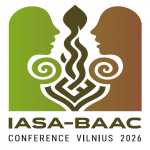2.1.2 Acquisition by Deposit, Donation or Purchasing
Many sound and audiovisual archives acquire collections from specialists who are recordists themselves, by compulsory deposit, or in other ways that do not involve interacting directly with performers or creators of content. In some of these cases, however, it remains important for the archive to determine whether the materials being deposited include sufficient information about the collection to determine whether the archive’s use of it safeguards the “rights, interests, and sensitivities” of those whose traditions, memory, or expressions are represented in the collection. The ethics document of the International Council of Museums (ICOM) addresses issues of illegally acquired materials donated to museums, which is important for sound and audiovisual archives as well (sections 2.1, 2.2, 2.3, and 2.4). The ICOM document also addresses the ethical uses of materials that are considered sacred, secret, or meant to be accessed only by members of the originating community:
Section 2.5 on culturally sensitive material: Collections of . . . material of sacred significance should be acquired only if they can be housed securely and cared for respectfully. This must be accomplished in a manner consistent with professional standards and the interests and beliefs of members of the community, ethnic or religious groups from which the objects originated, where these are known (http://icom.museum/the-vision/code-of-ethics/, consulted 24/10/2010).
When recordings have been made without the knowledge or permission of the performers –especially recordings of secret, sacred and private materials, as well as recordings of political sensitive nature – they need to be treated distinctly from other materials. Archives should require clear information from depositors regarding materials that might be sensitive in this way and those having no such restrictions.
The acquisition of original recordings, such as field, private or other unpublished material, requires the establishment of a clear agreement between the archive and the depositor. Such an agreement should stipulate the archive’s entitlement to archive and provide access to recordings and documentation as well as possible rights that might be transferred to the archive. In addition, archives may wish to include specific terms about the archives’ obligation to recordists/depositors. When employees of the archive do their own recording, such mutual arrangements can be carefully controlled. Some recordists, however, may have acquired their recordings without giving much thought to obtaining the agreements needed to archive and provide appropriate access to them. The lack of formal agreements between recordists/depositors and performers or other rights holders is not sufficient reason to refuse the collection, but that lack needs to be noted and addressed in internal archive policies.
In case of the acquisition of entire collections compiled by depositors (e.g. donors; other institutional or private archives), the affiliation of the individual recordings with the original collection should remain identifiable. Agreements with the depositors should include clear stipulations regarding the time span of their validity and potential obligations of the archive, such as the perpetuation of the collection’s original arrangement, or specified preconditions of its use.
In some circumstances broadcast, commercial or other archives may wish to acquire copies of material which originally belonged in their collection but which has been overlooked, lost or deaccessioned, but for which there is now a requirement. In such cases the collectors’ or donors’ rights are less critical however, archives may choose to reimburse or reward collectors for the role in preserving the material in the interim.


